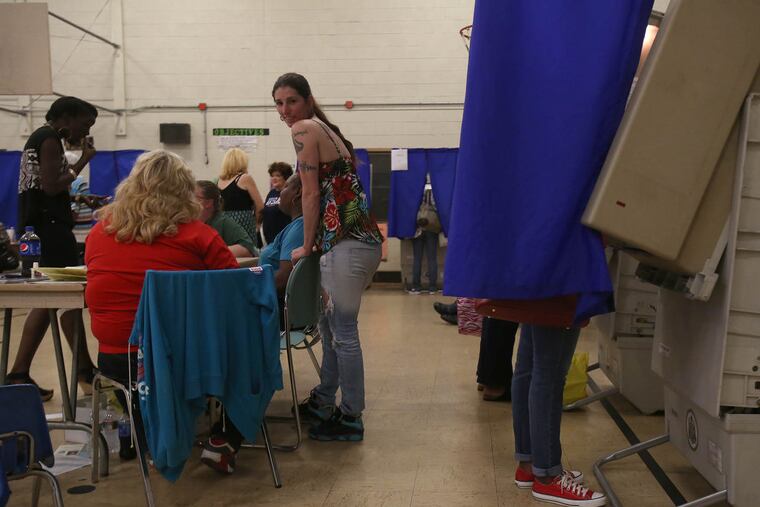Lower Philly’s voting age to 16 to make the city more welcoming to young people | Opinion
There are so many issues that impact the lives of teens in Philadelphia: public space, public education, school violence, a city-wide curfew, and limited job opportunities for young people over the summer months. I can’t help but wonder what our city would it be like if 16- and 17-year-old Philadel

A Northeast Philly park in Councilman Brian J. O’Neill’s district will soon install sonic devices that emit sounds that can be heard only by teens and those in their early 20s, news site Billy Penn recently reported. The park, overseen by the city’s Parks and Recreation Department, is one of 30 public spaces across the city with these devices. The goal is to prevent young people from hanging out in the park at night and causing trouble.
In a city with a large youth population and few free, welcoming public spaces that cater specifically to teens, I found this disturbing. Why aren’t our local elected officials doing more to make Philadelphia a welcoming place for people of all ages?
There are so many issues that impact the lives of teens in Philadelphia: public space, public education, school violence, a citywide curfew, and limited job opportunities over the summer months. I can’t help but wonder what our city would it be like if 16- and 17-year-old Philadelphians could vote in municipal elections.
Would they vote for representatives who allow aggressive policies that target millennials and Gen Z, like installing sonic devices at parks? I don’t think so.
Would elected officials be more inclined to better serve the next generation if young people voted? I bet they would.
Young people contribute to society in significant ways. At 16 and 17, you can obtain a driver’s license, be employed, and are expected to pay taxes. In fact, not allowing 16- and 17-year-olds to vote is a clear case of taxation without representation — one of the key principles that our country was founded on. Voting is our most basic civic duty and one of the most effective ways to influence society.
Currently, there are four U.S. cities, all in Maryland and D.C. suburbs, that have lowered the voting age to 16 for their local elections (which was voted on as a charter question, and does not require a change to the constitution).
In all four cities, younger voters have turned out in higher numbers than their older peers and city officials boast positive results.
Studies show that people who vote in the first election for which they’re eligible are up to 50 percent more likely to vote again. By casting the first vote two years earlier, when students are not in transition postgraduation, young Philadelphians would have a better chance to turn into regular voters who help shape the face of democracy in our city, state, and county.
With Philly’s weak voter turnout, lack of consistent classroom civics, and a political system that rarely ebbs and flows, there is a strong case to be made to lower the voting age for Philadelphia’s municipal elections.
I encourage our lawmakers to consider lowering the voting age in local elections. It is time that we in Philadelphia make a bold move to put new energy and more participation into our democracy. Lowering the voting age for municipal elections can do just that. Call your elected officials today to support the legislation — even better, get 16- and 17- year-olds to call them, too.
Jen Devor is a former candidate for Philadelphia City Commissioner. She is an advisory board member for Vote16USA, an organization dedicated to supporting campaigns to lower the voting age.